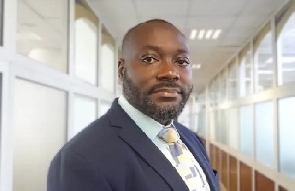The Ghana National Petroleum Corporation (GNPC) finds itself in a tight corner. Confidential documents show that the independent power producer, Genser Energy, is proposing to split an existing gas sales agreement (GSA) to address public misrepresentation of the deal as it has been unfairly accused of fleecing the state.
Accra-based policy think tanks – the Africa Center for Energy Policy (ACEP) and IMANI – have been launching calculated media onslaughts on Genser Energy, describing the agreement between GNPC and Genser as a “sweetheart deal” that is milking the nation.
They accuse Genser Energy of getting a lower fixed gas rate of just US$2.79 per mmBTU (a unit of energy measurement) for the natural gas it receives from the national oil company.
“Genser’s negotiated gas rate with GNPC is completely mindboggling in a country where the energy regulators assume an average cost of gas of $6.08 per mmBTU when setting tariffs for electricity pricing. In fact, actual gas pricing on the market for various power plant operators (or the government, depending on circumstances) is often higher than this,” the two think tanks published recently.
But if the think tanks understood how gas deals worked, they probably would be in the gas business.
Sources familiar with the agreement have told the Ghanaian Observer that the price stated in the current GNPC and Genser gas sales agreement includes offsets for other strategic services Genser is providing for GNPC.
For instance, GNPC does not have pipelines to transport gas from a place like Prestea, so it resorts to that of Genser to reserve its capacity for public goods.
To avoid any confusion and public mudslinging, The Ghanaian Observer has intercepted a letter from Genser Energy dated 25 July 2023 and addressed to the CEO of GNPC, Opoku Ahweneeh-Danquah. It seeks to split the current deal into a standard gas sales agreement and a separate gas transportation agreement.
The request for transparency means GNPC would have to pay standardized WAPCO rates for using Genser Energy’s pipelines to transport gas to power plants such as Ameri. Genser would also increase payment to GNPC by paying the market price based on PURC rates to avoid any misrepresentation by non-parties to the GSA.
Officials of Genser Energy and GNPC did not respond to emails about the letter.
The letter titled: “Proposal to split the combined GNPC GSA into: (I) a standard gas sales agreement and (II) a separate gas transportation agreement”, was copied to the Energy Minister, Dr Mathew Opoku Prempeh and the Speaker of Parliament, Alban Bagbin.
Below are details of the letter in possession of The Ghanaian Observer:
Proposal
3. As you may recall, the GSA was, in order to give effect to the MoE Directive, amended and restated on 30th July 2021 to provide for:
(a) the development, financing, and installation of PP02 with the requisite natural gas compression
facilities;
(b) the sale and purchase of up to 60mmscfd of Natural Gas delivered at GNGC PRMS at the agreed
Contract Price and an additional 15mmscfd at prevailing PURC WACOG prices; and
(c) GNPC reservation of pipeline capacity on PP02 for 130mmscfd for a consideration equal to the product of PP02 Cost Recovery Charge multiplied by the Contract Quantity of Natural Gas (assuming a fixed WACOG of US$6.08/mmBTU escalated at USA CPI on an annual basis).
4. Pursuant to Clause 3.3 of the GSA, GEGL is required to transport Sales Gas through PP02 and other GEGL pipelines from the GNPC Entry Point (GNGC PRMS) to multiple GNPC Exit Points (currently the VRA and AKSA Custody Transfer Points) for a fixed charge (PP02 Cost Recovery Charge) for 130mmscf/d or less and a negotiable charge for all volumes above 130mmscfd.
5. GEGL notes the understandable public interest in the terms of the GSA and the apparent confusion
(particularly in respect of the PP02 Cost Recovery Charge and the reservation of pipeline capacity) expressed by some non-parties to the GSA. GEGL further notes that the apparent confusion and misrepresentation has arisen from the inclusion of the PP02 and gas transportation arrangements in the GSA, GEGL is therefore keen for the document to be simplified in order to aid better comprehension by interested non-parties to the GSA.
6. To this effect, GEGL has approached the GEGL Senior Lenders who have expressed their willingness to consider favourably, GEGL’s engagement with GNPC as its counterparty under the GSA (as well as MoE and the Parliament of the Republic of Ghana as critical stakeholders) to negotiate a split of the Combined GSA into:
(a) a more typical gas sale and purchase agreement (the “Proposed GSA”) for the delivery of natural gas by GNPC to GEGL; and
(b) a tailored gas transportation agreement (the “Proposed GTA”) for the development of PP02 and the gas transportation services provided to GNPC by GEGL.
7. Expectedly, the GEGL Senior Lenders’ consent will require that the proposed split does not impair the current legal and economic position of the GEGL Senior Lenders. GEGL Senior Lenders’ consent would also only be granted if the proposed amendments are expressly approved in writing by the MoE and ratified by Parliament.
8. GEGL, is hereby formally requesting discussions with the GNPC, (with notification to the MoE and the Speaker of Parliament) in respect of the proposed split of the GSA as described above.
Business News of Monday, 31 July 2023
Source: dailymailgh.com













